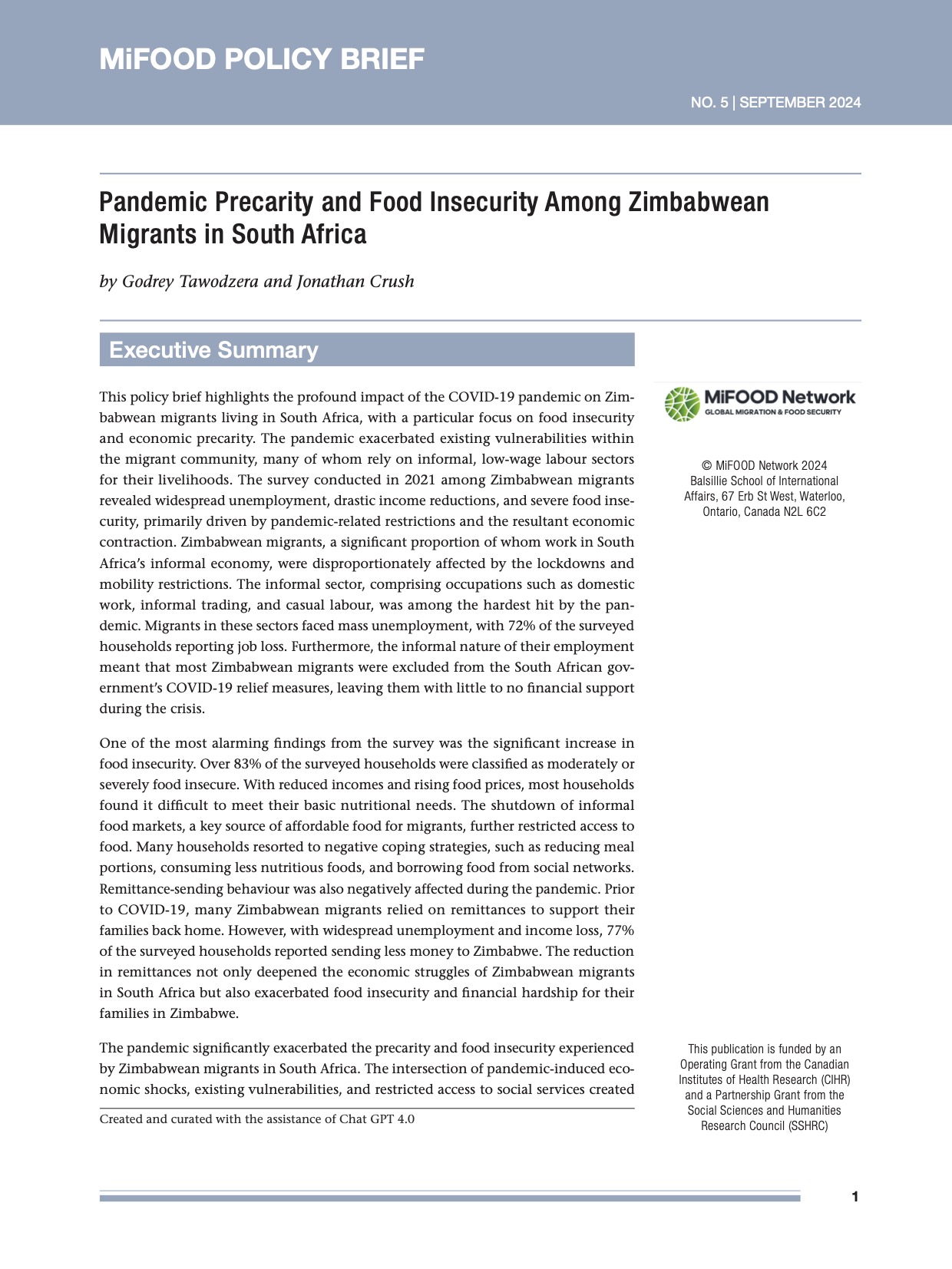This policy brief highlights the profound impact of the COVID-19 pandemic on Zimbabwean migrants living in South Africa, with a particular focus on food insecurity and economic precarity. The pandemic exacerbated existing vulnerabilities within the migrant community, many of whom rely on informal, low-wage labour sectors for their livelihoods. The survey conducted in 2021 among Zimbabwean migrants revealed widespread unemployment, drastic income reductions, and severe food insecurity, primarily driven by pandemic-related restrictions and the resultant economic contraction. Zimbabwean migrants, a significant proportion of whom work in South Africa’s informal economy, were disproportionately affected by the lockdowns and mobility restrictions. The informal sector, comprising occupations such as domestic work, informal trading, and casual labour, was among the hardest hit by the pandemic. Migrants in these sectors faced mass unemployment, with 72% of the surveyed households reporting job loss. Furthermore, the informal nature of their employment meant that most Zimbabwean migrants were excluded from the South African government’s COVID-19 relief measures, leaving them with little to no financial support during the crisis.

